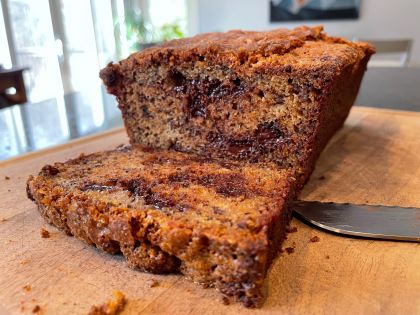Featured Posts
-
Featured
TC Farm Produce: Organic. Year Round.
Published: Feb 15, 2023
Read More -
Featured
Banana Bread
Published: Apr 05, 2022
Read More -
Featured
What do Hens Do on Lockdown?
Published: Apr 04, 2022
Read More
What to do about grains
We advocate a vegetable based diet, with a healthy portion of meats and animal fats. Grains take a back seat, but we don’t feel they need to be eliminated like a paleo diet would suggest. However, unless prepared correctly(soaked), they can actually deplete our bodies of nutrients and wreak havoc on our health. Grains in processed foods should be avoided or viewed as a rare, special treat. This especially includes rice and oats.
Why are grains hard to digest?
Why would grains (or legumes) be so hard to digest in their unsoaked form? The reason is that grains are seeds. From a plant’s perspective, the whole point of seeds is to grow the next generation. To do this, the seed must protect its nutrients and keep itself intact so it can survive any weather and even germinate after being consumed by animals. Phytic acid stores most of the plant’s phosphorus and is a critical compound to ensure the nutrients of the seed are safely stored for the next generation. Soaking starts the process of releasing these nutrients, just like a nice spring rain.
Does this really matter?
YES. In fact, soaking and fermenting grains or legumes are one of the key methods the World Health Organization recommends to eliminate anemia.
When you eat unsoaked grains, important nutrients like phosphorus, iron, zinc, calcium, and magnesium are bound up in an undigestible phytic acid. Phytic acid also negatively impacts the absorption of lipids and proteins while reducing our ability to digest the carbohydrates found in the grains themselves. Soaking and fermenting the grains reduces the amount of phytic acid considerably; Including raw buckwheat or rye enhances this effect.
What about Gluten?
Most people who are sensitive to gluten have no idea they are -- symptoms of a food sensitivity can include: Depression, dry skin, heart disease, light headiness/brain fog, and more.
If you are sensitive to gluten now, that doesn't mean you must avoid it forever... in fact over 99% of people would be just fine eating gluten so long as their body is fully healthy -- a gluten sensitivity is like the canary in the coal mine. It means it is time to adjust your diet and heal your gut.
Want to learn more?
A great book to read is Wheat Belly -- although I disagree with the idea that gluten itself is a problem for most people.
The GAPS book is technical but really provides an amazing baseline to understanding how connected our bodies are and how the food we choose impacts our health... For example, after reading this book, I understand why it is so important to avoid the binders that are in most processed meats from the store.
Perhaps the best book is from Terry Whals -- she adjusted her diet and cured/caused remission of her stage 2 progressive multiple sclerosis, a normally terminal disease.
She says: "if you want to die young and be disabled early, eat processed foods. If you want to be healthy and more vigorous... cook your food"
Here is a video about her experience.
Soaking grains is easy:
That's all you HAVE to do... but it would be more effective if you added in a few of these tips:
For brown rice, which is also deficient in phytase, so either use white rice or save the soaking water from your brown rice to use in the next batch. Just save 10-20% of it, store refrigerated in a small jar and keep reusing it. After about 3 batches, you'll have enough phytase to break down 96% of the phytic acid. A good tip is to remember that you won't need as much water when you cook the rice after soaking, maybe 1 cup of soaked rice to 1.5 cups of water. Here are some more good rice tips.
For beans/lentils. They soak a lot better with a fermentation or vinegar addition, but some don't like the resulting texture. To ferment: put in some live yogurt or keifer to the mix, if you can keep the beans at 110-120 degrees overnight, that is also great... if you don't add yogurt, you can actually bump that temp up to 140 degrees to get more of the phytic acid broken down.If you buy dried beans and soak overnight, you'll have a higher protein and nutrient content and also make them way easier to digest. Here are some more bean tips.
Please share your comments, other resources, recipes and tips below.
Questions are also appreciated!









Comments (0)
Add a Comment
Add a Comment